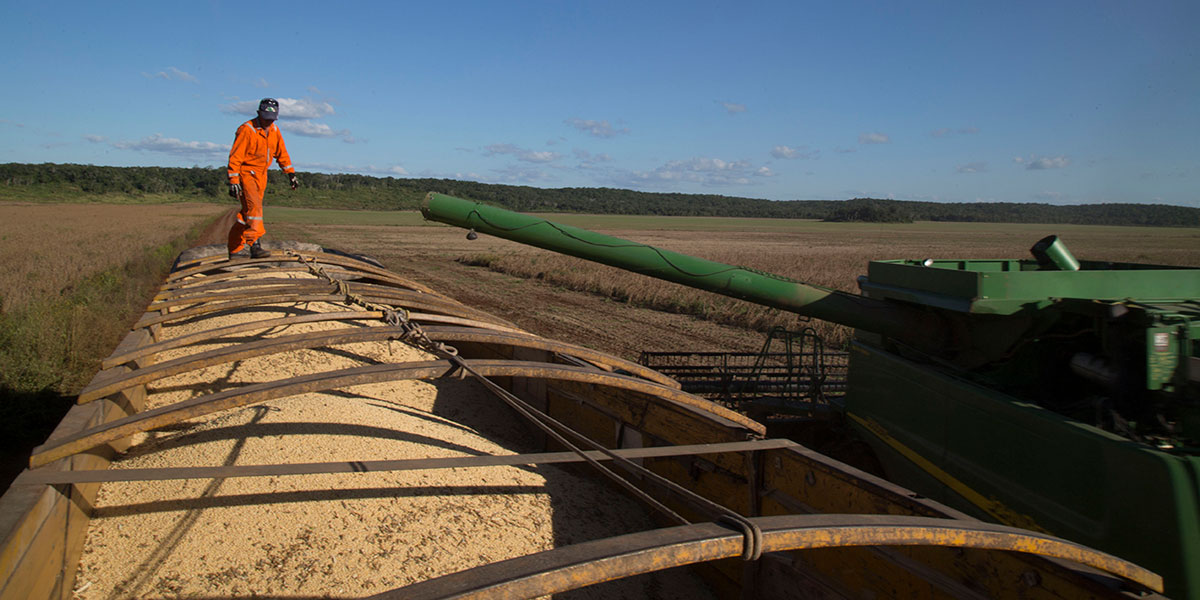
Monsanto’s seed continues to be used despite court rulings and revoked permit
For the third year in a row, the municipality of Hopelchén in the state of Campeche in Mexico has been an epicenter of illegal activity. It has been reported that during the 2018 growing season, farmers and businesses have continued to commercialize and sow transgenic soybeans, even though permit number 007/2012, granted to Monsanto in 2012, was suspended by the National Supreme Court of Justice (SCJN) on November 4, 2015 and was later revoked by the Food Safety and Quality Service (Senasica) on September 15, 2017.
In the citizen complaint filed on October 5 before Senasica, Mayan communities and NGOs asked the authorities to inspect and monitor the following sites: Santa Fe, Trinidad, Las Flores, Santa Rosa, Nuevo Progreso, and Rancho Santa Juliana, among others, where it is believed that transgenic soybeans have been illegally sown.
A large part of the 120 thousand tons of soybeans that will be harvested from more than 42 thousand hectares in the municipality of Hopelchén is transgenic. This prompted a formal complaint filed by the Mayan communities of Hopelchén, together with Indignación AC and Greenpeace Mexico, regarding the probable release into the environment, planting, possession and commercialization of genetically modified soybeans without a permit and in violation of the SCJN ruling.
Senasica, which is part of the Ministry of Agriculture, Livestock, Rural Development, Fisheries and Food (Sagarpa), acknowledged that transgenic soybeans were grown on 16 farms in the municipality during the 2016 planting season, despite the legal restrictions.
In 2016, Sol Ortiz, head of the Inter-Secretarial Commission on Biosafety of Genetically Modified Organisms (Cibiogem), testified about the existence of illegal soy at the hearing of the Inter-American Commission on Human Rights (IACHR), held in Panama. She delivered a GM soybean inspection and surveillance report for the state of Campeche. Previously, Mayan communities of the area had requested such a report, and were repeatedly denied.
In 2017, more than 23 thousand hectares of this soybean variety were planted in the municipality of Hopelchén, roughly 85% of the crop cultivated that year.
"These facts confirm the inability of Senasica and Cibiogem to guarantee biosecurity in Mexican territory," said Maria Colin, spokesperson for Greenpeace. "We regret that it is the organizations and communities that carry out the inspection and reporting work that corresponds to the authorities, who still do not recognize the serious problem of lack of control and trafficking of transgenic soy seeds in the region. Campeche is an example of unsafe planting practices in terms of biosecurity, where it operates outside the law," Colín added.
Jorge Fernández Mendiburu, an Indignación team lawyer and adviser to Mayan communities, pointed out the inability of the judiciary to enforce its sentences and guarantee that the violation of human rights cease.
Additionally, the communities and organizations expressed concern and disagreement about the possible appointment of Sol Ortiz, current head of Cibiogem, to a strategic position in Sagarpa with the new government of Andrés Manuel López Obrador.
Communities and organizations demanded that the authorities promptly apply the law to those who have violated national legislation affecting biosecurity. They demanded the seizure of transgenic material, identification of distribution and entry points, and the collection of information about the mobilization, storage, distribution and sale of seed for planting in the state of Campeche.
The organizations warned that if soybean companies and growers insist on the commercialization and planting of transgenic seeds, infractions relating to Mexican biosecurity carry fines of over $2 million pesos (125,160 USD), which could double in cases of recidivism (Article 120 of the GMO Biosafety Law).
Source: Collective MA OGM